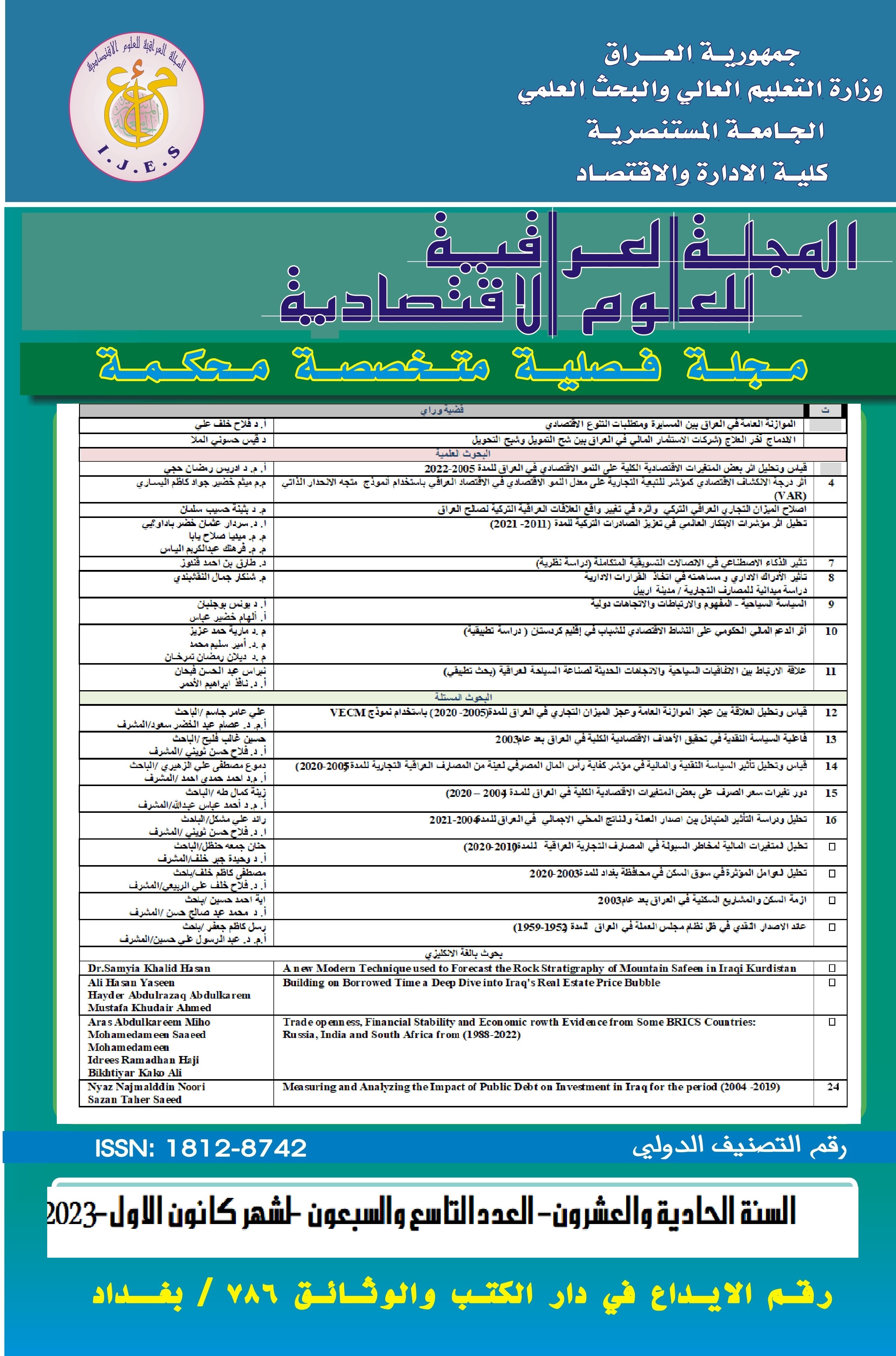Measuring and analyzing the impact of some macroeconomic variables on economic growth in Iraq for the period 2005-2022
Keywords:
Economic growth, gross domestic product, operating expenditures, investment expenditures, oil revenues, non-oil revenues, Iraq.Abstract
The governments of the countries of the world seek to raise the standard of living for the members of society, and the gross domestic product is the most important indicator that expresses economic growth in a country, and some macroeconomic variables are considered an engine and a driver for economic growth, and in order to enhance economic growth, this research aims to measure the effect of Some macroeconomic variables on economic growth in Iraq during the period (2005-2022). To achieve this goal, the research relied on the descriptive analytical approach and the standard analysis that relies on quarterly time series data, using (DLOS, FMOLS) models, to show the impact of each of operating expenditures, investment expenditures, oil revenues, non-oil revenues and inflation on the gross domestic product, and finally The research reached several conclusions, including: There is a positive relationship between operating expenditures and investment expenditures with the gross domestic product, i.e. public expenditures in both parts (operational and investment) contribute to achieving economic growth, but the contribution of investment expenditures is greater than operating expenditures. The impact of both oil revenues and non-oil revenues was positive on the gross domestic product, but the impact of oil revenues was greater than the impact of non-oil revenues, and this result corresponds to the Iraqi economy, which relies on oil revenues to finance economic growth. The research also concluded that the impact of the inflation rate was negative on economic growth in Iraq, because fluctuations in the general level of prices and the depreciation of the Iraqi dinar negatively affected purchasing power and economic growth in Iraq. ) also had a negative impact on the gross domestic product; That is, the political and security conditions (political conflicts, terrorism) that Iraq went through during the period (2005-2022), which negatively affected economic growth in Iraq; Accordingly, it is necessary that the policy of economic diversification is one of the most important means of achieving real economic growth through diversification of non-oil revenue sources on the one hand and rationalization of operational expenditures on the other hand, in order to strengthen the relationship between macroeconomic variables and economic growth.






